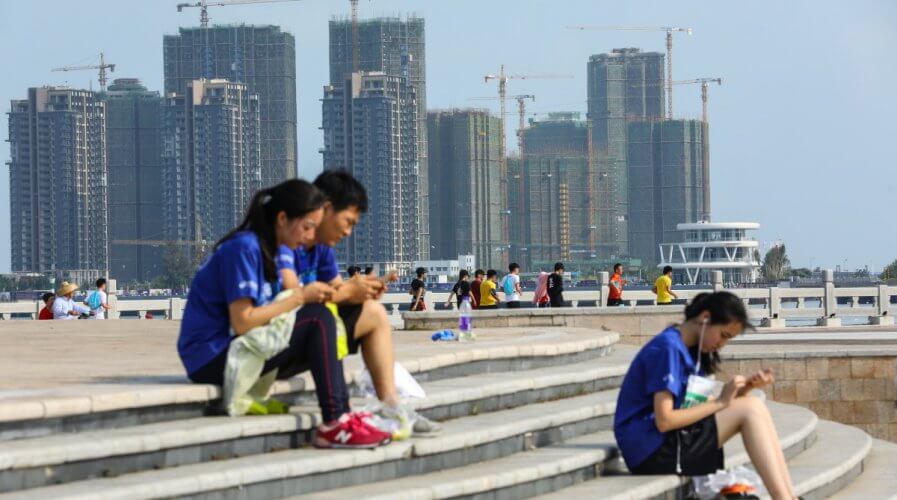
Counterfeit goods are sold on digital platforms in China. Source: Reuters
China is breaking down its ‘Great Firewall’ for tourists
CHINA’S Hainan province has floated the idea of introducing a special zone to allow foreign tourists to use Facebook, YouTube, and Twitter as a means to attract visitors.
The southern island province known as China’s Hawaii announced on Thursday it would create a special “gathering zone” for foreign tourists where they can access such sites. Hainan’s provincial government detailed the plan on its website.
The move would have marked a rare departure from China’s long-held stance on the internet, where many foreign websites are banned in the name of maintaining social stability, a restriction dubbed by netizens as the “Great Firewall”.
Facebook has been banned in China since 2009, as authorities blamed the platform for facilitating riots by ethnic minorities in the Xinjiang province.
Zhang Lingyun, director of the Tourism Development Academy at Beijing Union University told state-run newspaper the Global Times that “just like during the initial stage of the country’s reform and opening-up in 1978, special rights and services were given to foreigners to attract them … it will be gradually extended, and local residents may use Facebook and Twitter as well.”
Hainan’s plan quickly faced some criticism on Chinese social media. “Are we establishing the ‘one country, two system’ policy in Mainland China now?” said Wu Ran, a user on China’s microblogging site Weibo.
Another Weibo user said “This is an entirely blatant, contemptible, imprudent, low behavior of reverse racism. This is garbage!”
According to the Epoch Times, the plan has already been deleted from the Hainan government’s website, and Chinese censors had even blacklisted relevant words from search engines.
The government’s flip-flopping on allowing access to Facebook and Twitter reflects reports in 2013 that these sites would be available within a special Shanghai free trade zone. Beijing later said this was false.
China said in April it aimed to make Hainan an international free trade zone by 2020, an announcement that precipitated a short-lived property boom on the island.
Hainan wants to increase its tourist numbers by 25 percent annually to at least 2 million by 2020 and will promote tourism through advertising on foreign broadcasters such as BBC and CNN.
It said it would boost subsidies to increase the number of international direct flight routes to and from Hainan to 100 by 2020 and would abolish restrictions on foreign investment in air, rail and waterway transport.
The island will also ensure credit and debit cards issued by foreign card companies Visa and MasterCard are accepted at major tourist sites, hotels and shops by 2019, it said.
This article originally appeared on our sister website Asian Correspondent.
READ MORE
- Safer Automation: How Sophic and Firmus Succeeded in Malaysia with MDEC’s Support
- Privilege granted, not gained: Intelligent authorization for enhanced infrastructure productivity
- Low-Code produces the Proof-of-Possibilities
- New Wearables Enable Staff to Work Faster and Safer
- Experts weigh in on Oracle’s departure from adland




